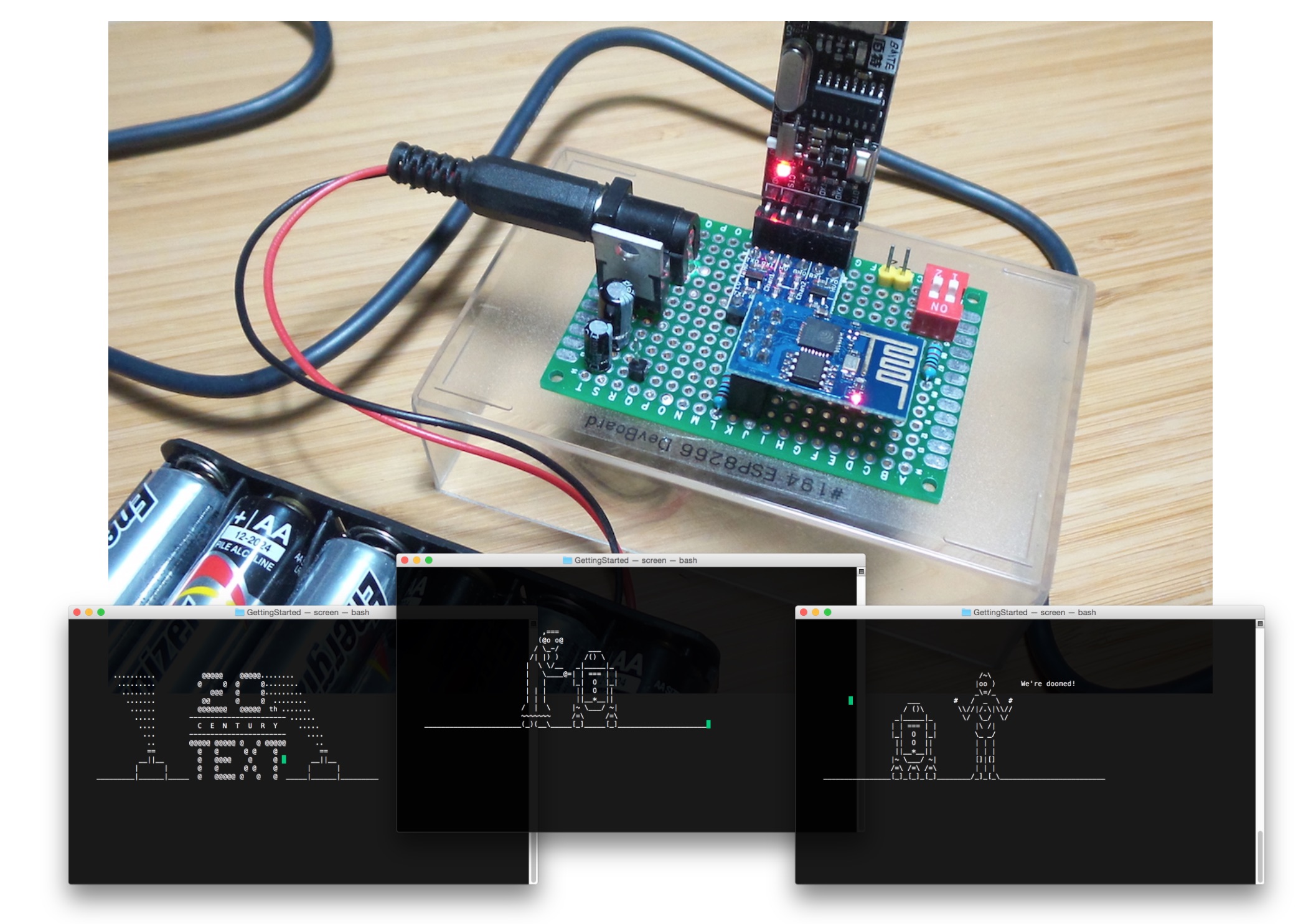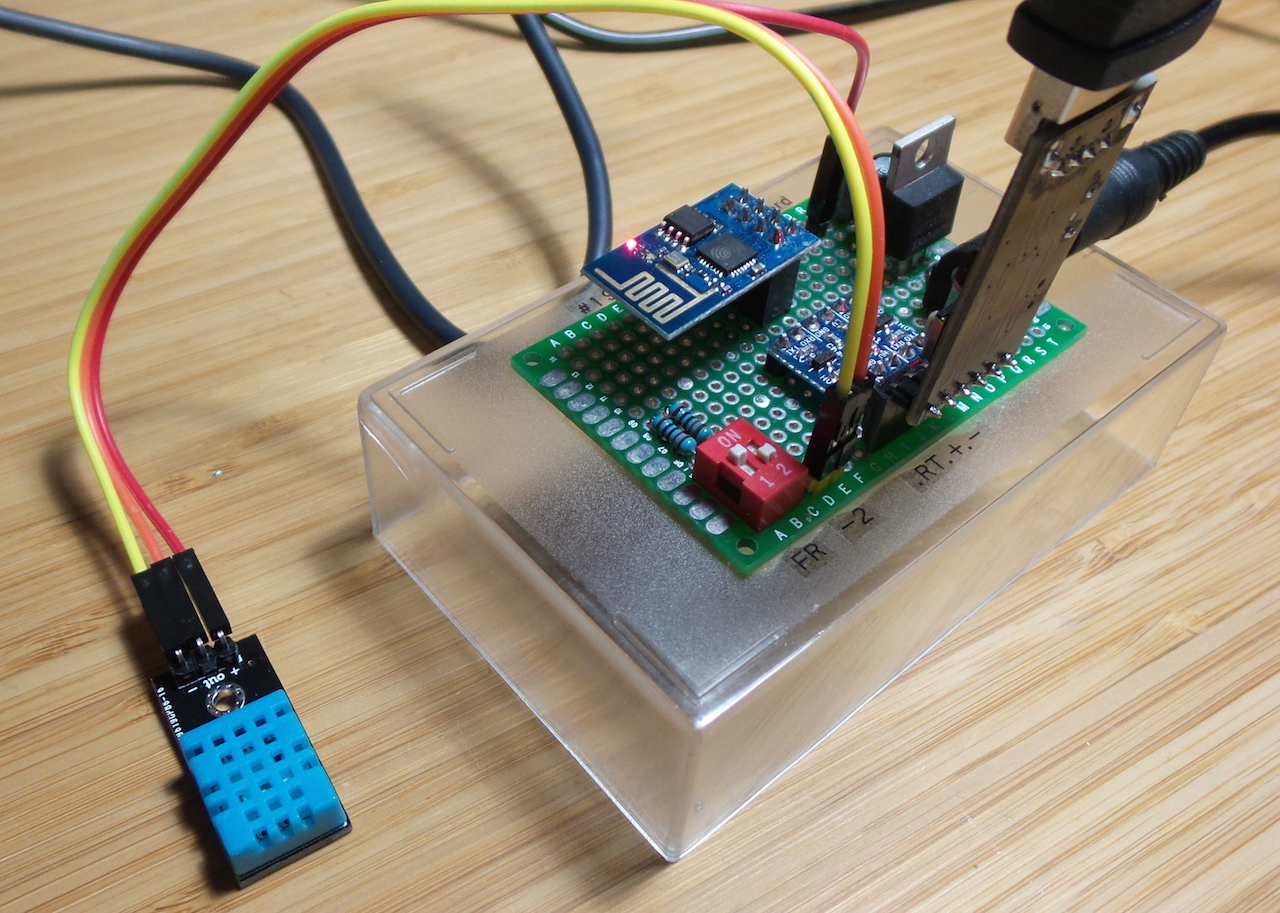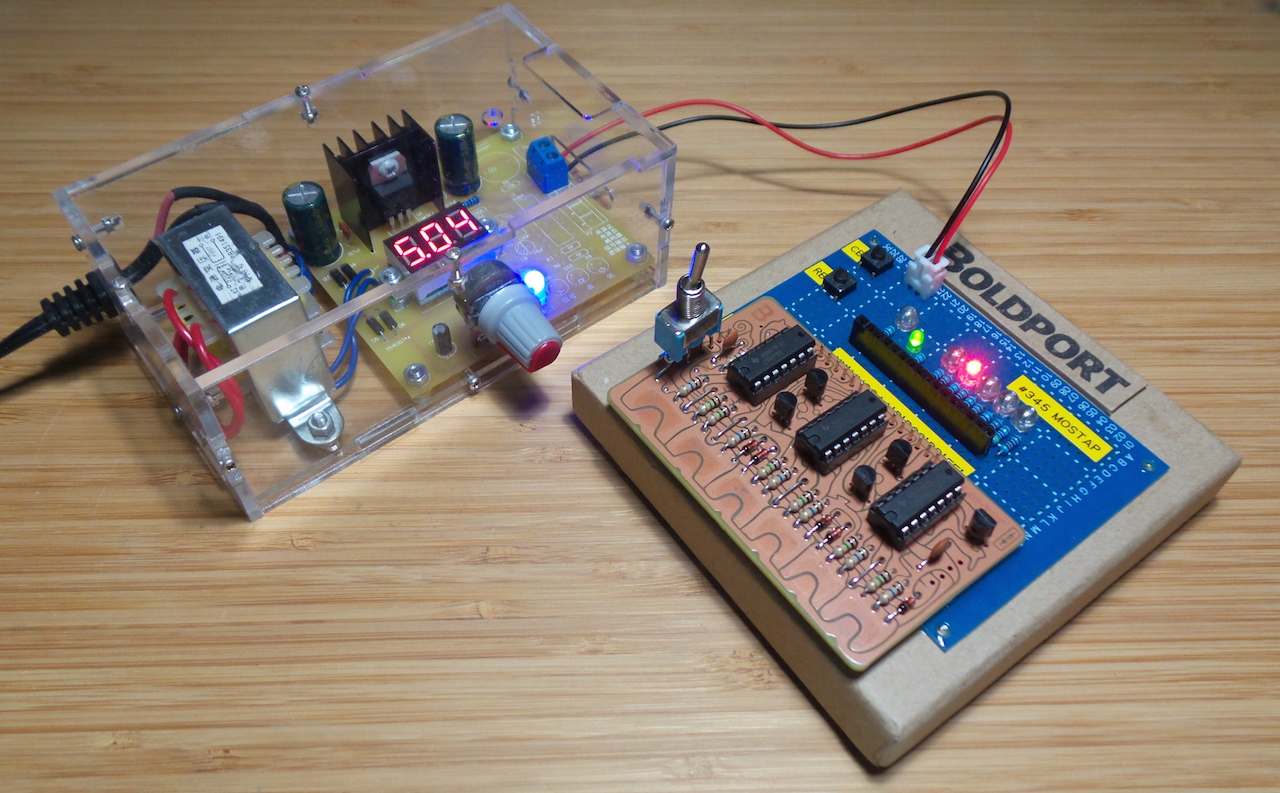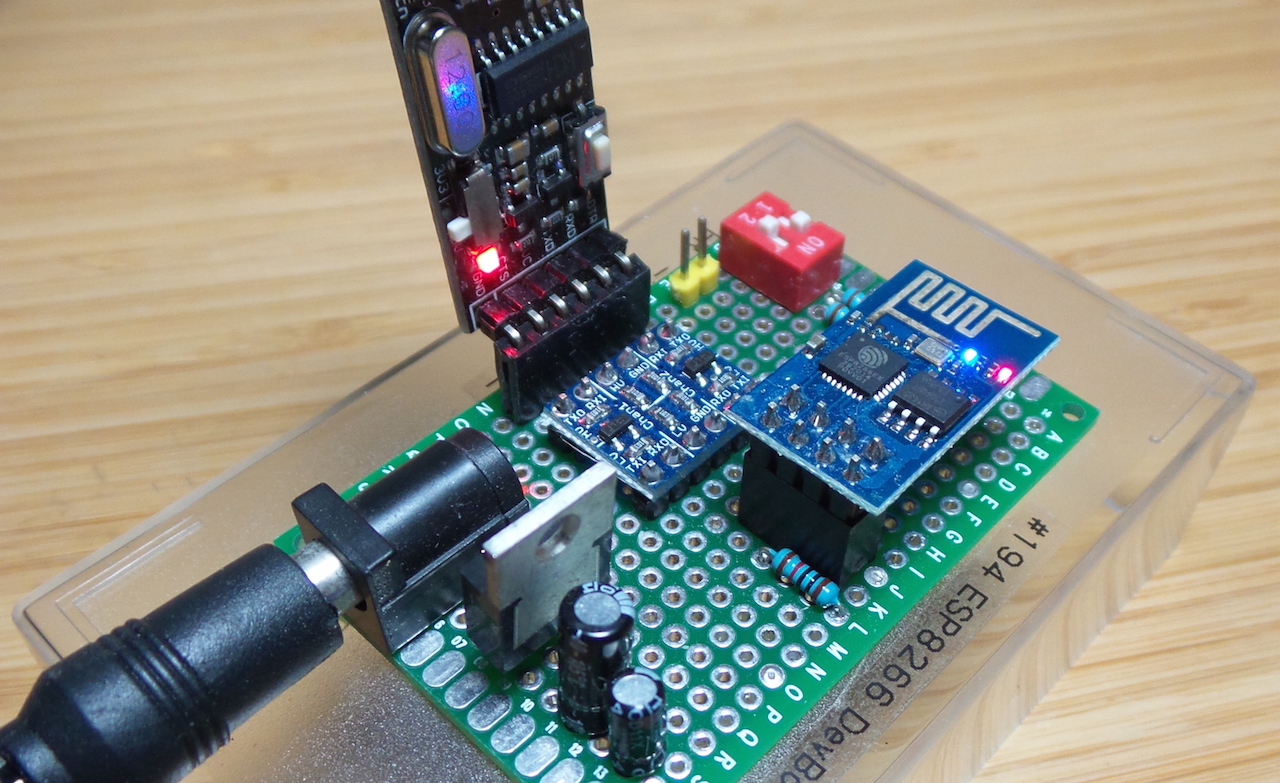LEAP#345 Boldport Club MOSTAP
The MOS TAP circuit was originally published in Elektor magazine in Feb 1975. It was an update or the original TTL Tap circuit to use “state-of-the-art” COSMOS (CMOS) components.
In practical terms, that means 4000-series logic instead of 7400-series logic.
The Boldport Club version of this venerable circuit makes an additional improvement by replacing the output stage BJT drivers with 2N7000 n-channel MOSFETs so that the project really does live up to it’s name!
I’ve added a few mods of my own - a mode switch and a test jig mounted on the beautiful Boldport box (too good to throw away).
As always, all notes, schematics and code are in the Little Electronics & Arduino Projects repo on GitHub
Here’s a quick demo:
read more and comment..
LEAP#344 MicroPython on the ESP8266
I first heard about MicroPython from the kickstarter campaign to open source the software.
Although it makes more sense to use it with a more capable board, I’m starting with a test on a 512kb ESP-01 module.
Nice … python on a micro, running Star Wars ascimation!
As always, all notes, schematics and code are in the Little Electronics & Arduino Projects repo on GitHub

read more and comment..
LEAP#343 ESP8266 DHT11 Sensor Reading
The DHT11 sensor is a very cheap and common sensor that provides readings of relative humidity (20-80% ±5%) and temperature (0-50°C ±2°C).
I’ve used this before with an Arduino, this time I’m testing with the most basic ESP8266 board - an ESP-01, which exposes one free GPIO. For coding I’m using ESP8266 core with the Arduino IDE, and the Adafruit sensor library to interface with the DHT11.
As always, all notes, schematics and code are in the Little Electronics & Arduino Projects repo on GitHub

read more and comment..
LEAP#342 ESP8266 Morse Blinky
A quick test of the ESP8266 core for Arduino, which brings support for ESP8266 chip to the Arduino IDE.
That means being able to write C++ sketches for the ESP8266 as easy as developing for an Arduino.
Here I’m using the most basic ESP8266 board (an ESP-01) with a sketch that blinks Morse code on the built-in LED.
As always, all notes, schematics and code are in the Little Electronics & Arduino Projects repo on GitHub
read more and comment..

